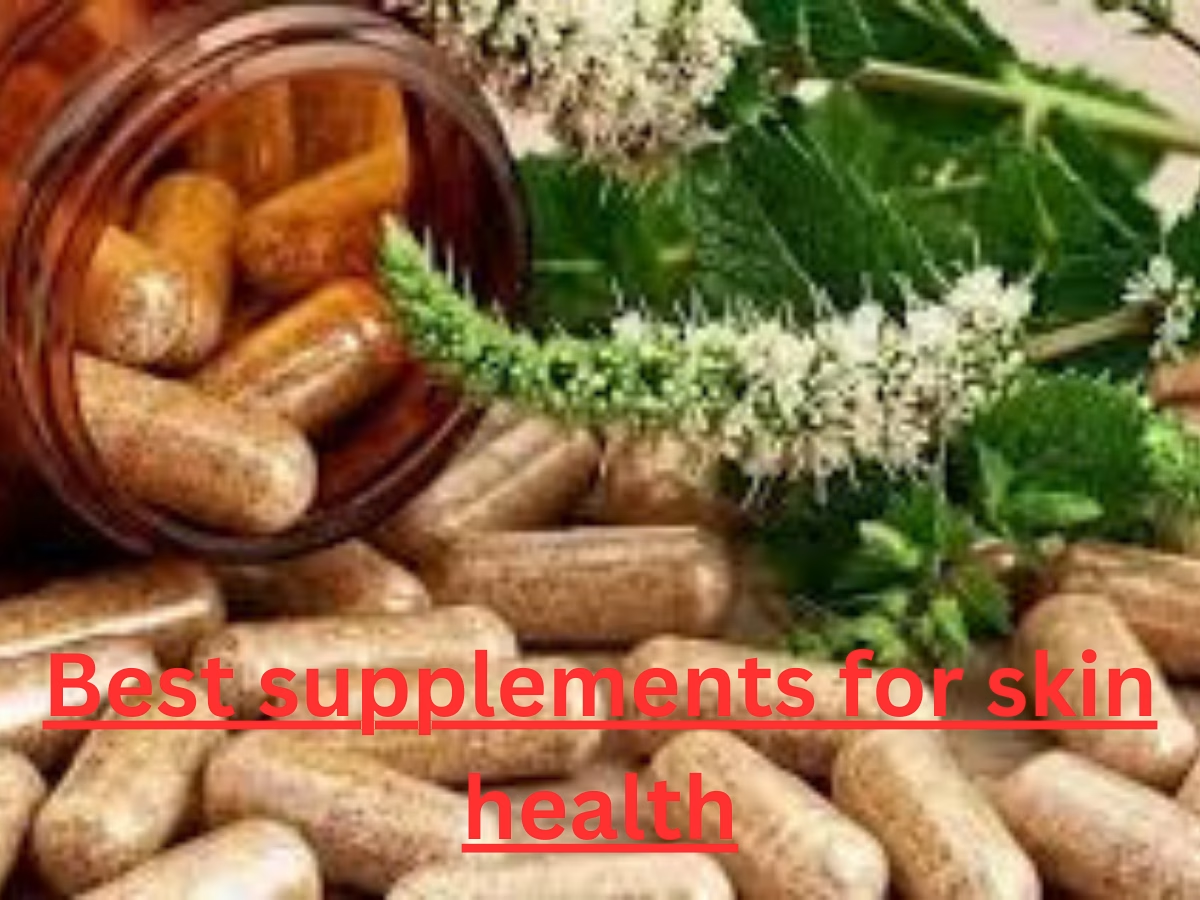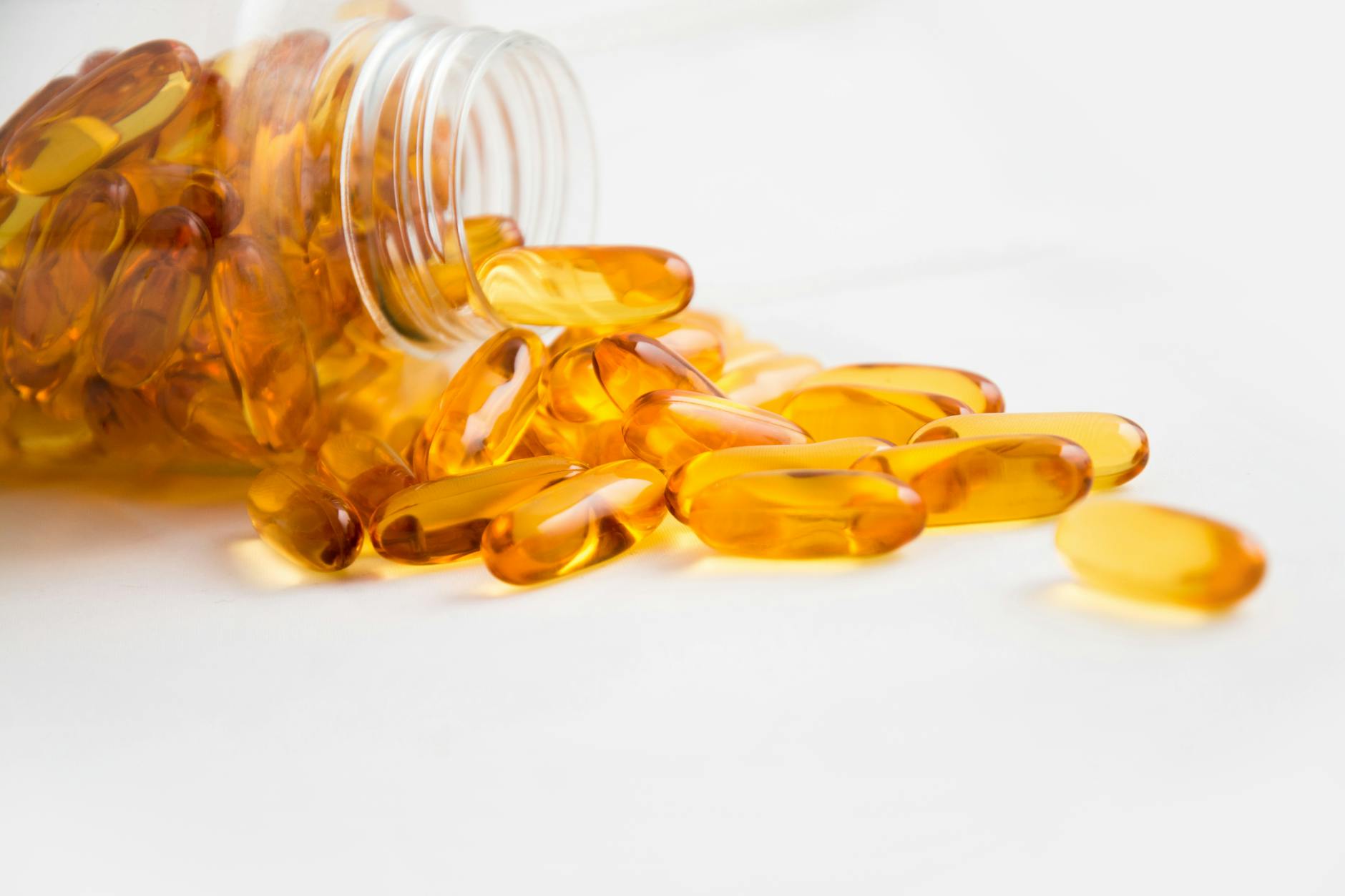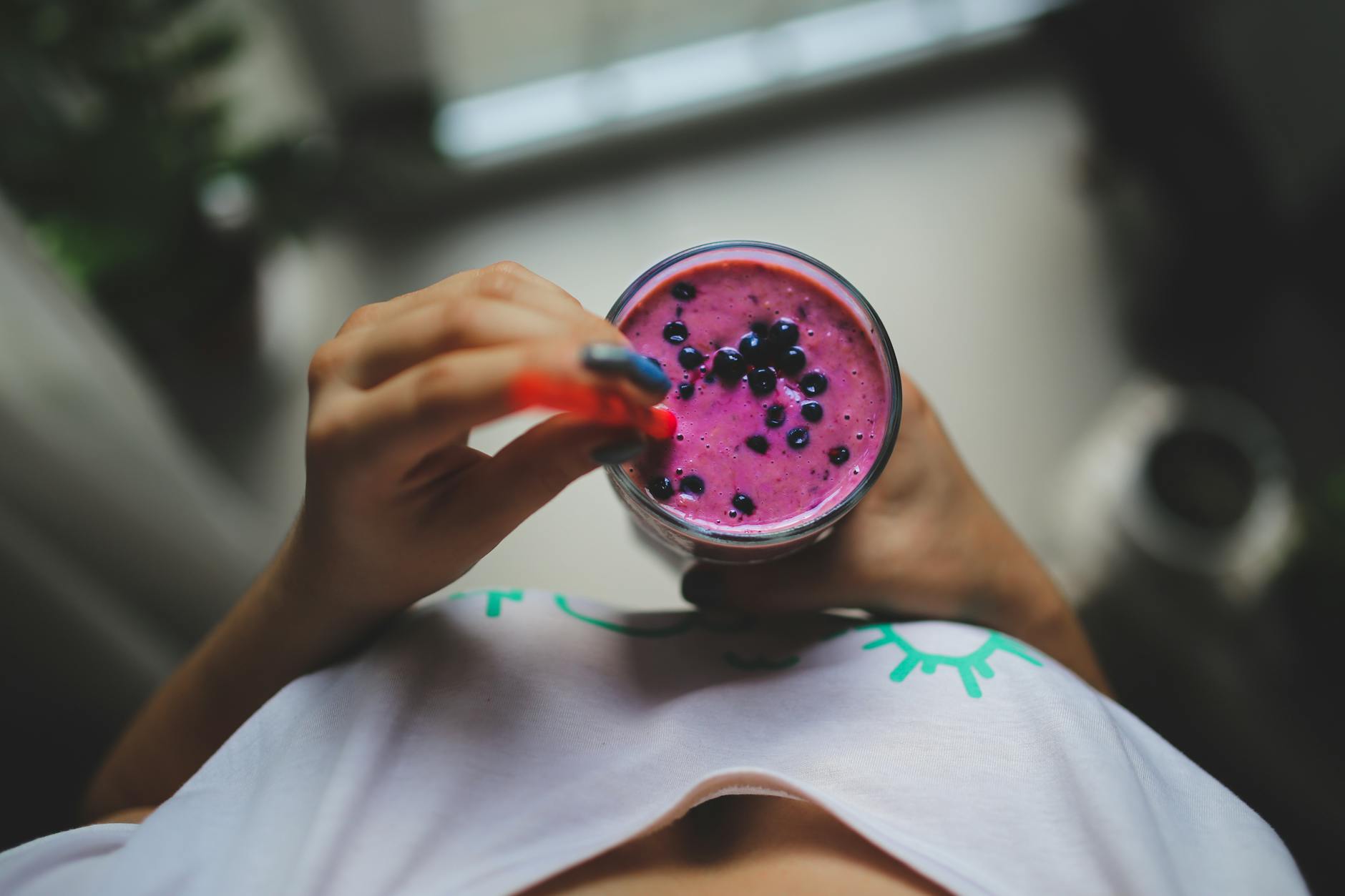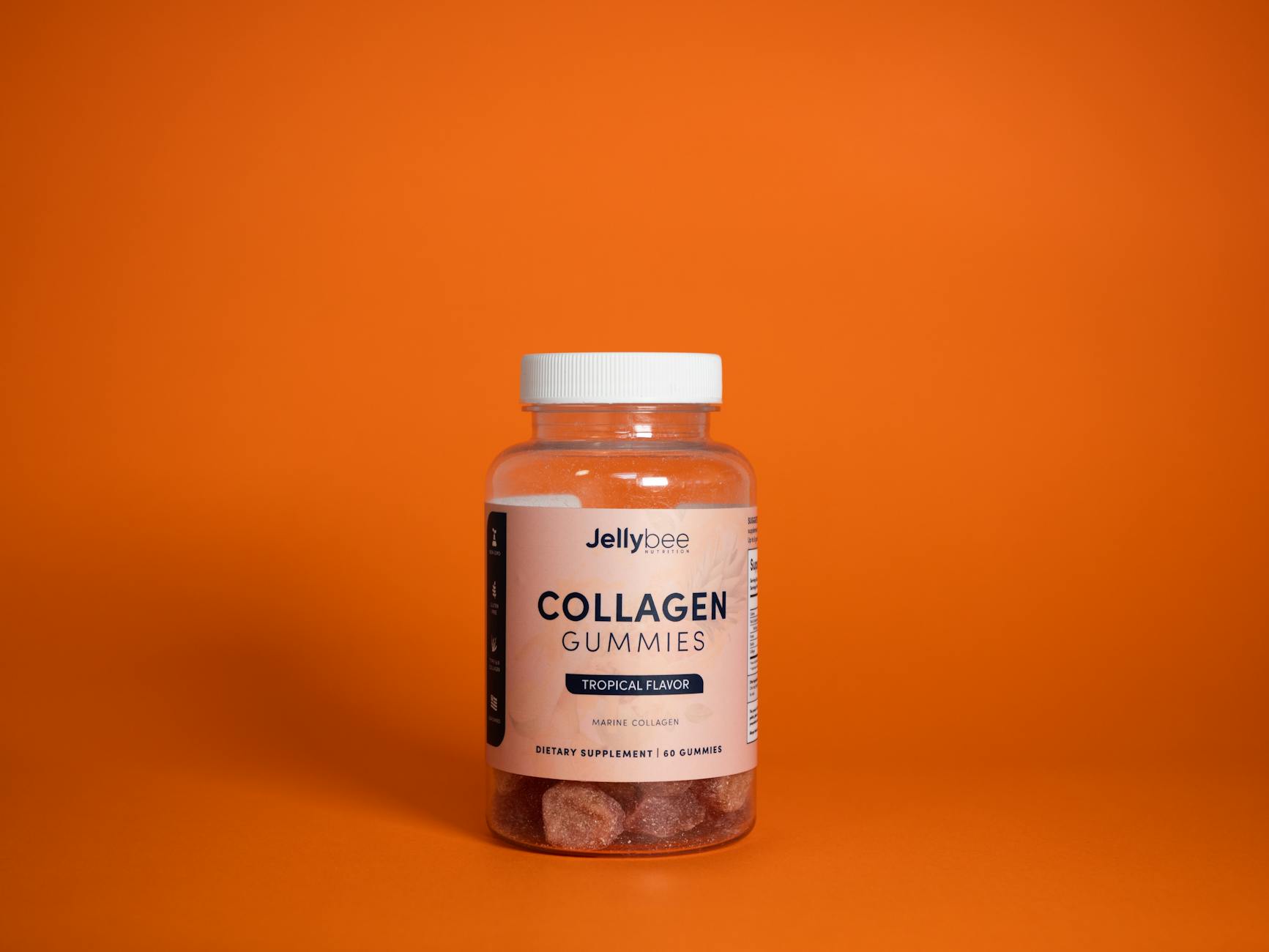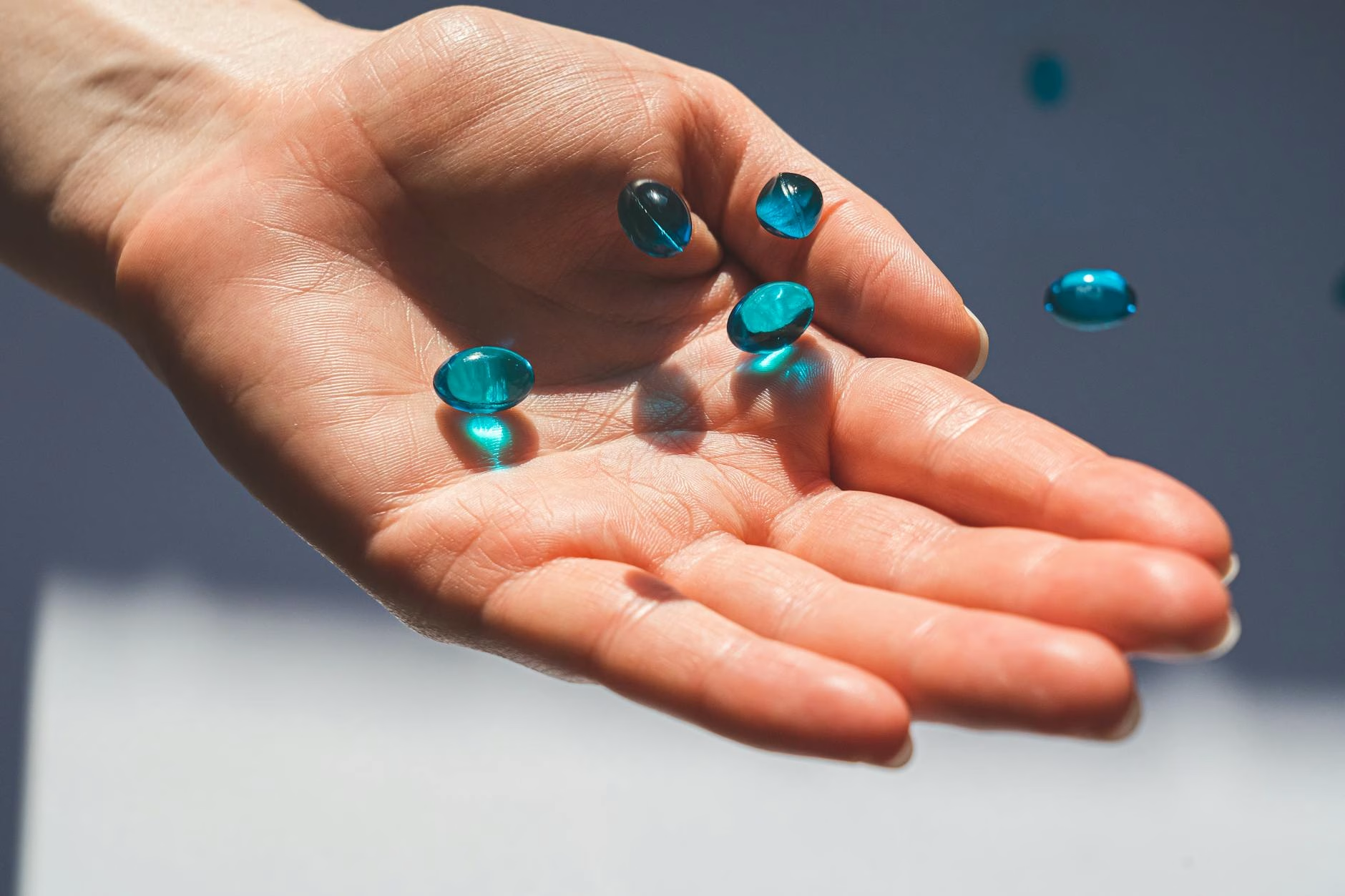
Are you tired of battling dry, dull skin despite your best efforts? You’re not alone. Millions struggle with skin issues, from premature aging to persistent acne. While a good skincare routine is essential, sometimes our skin needs a little extra help from within.
Enter the world of skin-boosting supplements! These powerful allies can work wonders for your complexion, addressing everything from hydration to elasticity. But with so many options on the market, how do you know which ones are truly worth your time and money?
In this comprehensive guide, we’ll explore the top 10 supplements for radiant, healthy skin. From omega-3 fatty acids to collagen, we’ll break down how each supplement can benefit your skin and why you might want to consider adding them to your daily routine. So, are you ready to unlock the secret to a glowing complexion? Let’s dive in!
Supplements for Skin Health
Understanding Skin Health Supplements
When it comes to maintaining healthy, glowing skin, what you put inside your body is just as important as what you apply topically. Skin supplements can play a crucial role in nourishing your skin from within, providing essential nutrients that may be lacking in your diet.
Types of Skin Health Supplements
There are various supplements that can contribute to better skin health:
- Vitamins and Minerals
- Fatty Acids
- Antioxidants
- Probiotics
- Collagen
Benefits of Skin Supplements
Different supplements offer various benefits for skin health:
| Supplement Type | Benefits |
|---|---|
| Vitamins & Minerals | Support skin cell renewal, protect against sun damage |
| Fatty Acids | Maintain skin hydration, reduce inflammation |
| Antioxidants | Fight free radicals, slow down aging process |
| Probiotics | Improve skin barrier function, reduce acne |
| Collagen | Enhance skin elasticity, reduce wrinkles |
Choosing the Right Supplements
When selecting skin supplements, consider:
- Your specific skin concerns
- Quality and purity of the supplement
- Potential interactions with medications
- Consultation with a healthcare professional
Remember, while supplements can be beneficial, they should complement a healthy diet and lifestyle, not replace them. In the following sections, we’ll explore specific supplements known for their skin-enhancing properties, starting with Omega-3 fatty acids.
Omega-3 Fatty Acids
Benefits of Omega-3 Fatty Acids for Skin Health
Omega-3 fatty acids are essential nutrients that play a crucial role in maintaining healthy skin. These polyunsaturated fats offer numerous benefits for skin health, making them a popular choice among dermatologists and skincare enthusiasts.
Key Advantages of Omega-3 for Skin
- Hydration: Omega-3s help maintain the skin’s natural oil barrier, preventing moisture loss
- Anti-inflammatory: Reduce skin inflammation, redness, and sensitivity
- Anti-aging: Support collagen production and protect against sun damage
- Acne prevention: May help regulate oil production and reduce breakouts
Sources of Omega-3 Fatty Acids
| Food Sources | Supplement Forms |
|---|---|
| Fatty fish (salmon, mackerel) | Fish oil capsules |
| Flaxseeds | Algae-based supplements |
| Chia seeds | Krill oil |
| Walnuts | Cod liver oil |
Recommended Daily Intake
The ideal dosage of omega-3 for skin health varies, but most experts suggest:
- 250-500 mg combined EPA and DHA daily for general health
- Up to 1000 mg for specific skin concerns (consult with a healthcare provider)
Incorporating omega-3 fatty acids into your diet or supplement regimen can significantly improve skin health, providing a natural and effective way to achieve a radiant complexion. As we explore other supplements, you’ll discover how they complement omega-3s in promoting overall skin wellness.
Gamma-Linoleic Acid (GLA)
What is Gamma-Linoleic Acid (GLA)?
Gamma-Linoleic Acid (GLA) is an omega-6 fatty acid that plays a crucial role in maintaining healthy skin. It’s found naturally in certain plant oils, such as evening primrose oil, borage oil, and black currant seed oil. GLA is known for its anti-inflammatory properties and ability to support skin barrier function.
Benefits of GLA for Skin Health
GLA offers several benefits for skin health:
- Moisturization
- Inflammation reduction
- Acne management
- Eczema relief
- Anti-aging effects
| Benefit | Description |
|---|---|
| Moisturization | GLA helps maintain skin hydration by supporting the skin barrier |
| Inflammation reduction | It has anti-inflammatory properties that can soothe irritated skin |
| Acne management | GLA may help reduce acne by regulating sebum production |
| Eczema relief | Studies suggest GLA can improve symptoms of eczema |
| Anti-aging effects | It may help reduce the appearance of fine lines and wrinkles |
How to Incorporate GLA into Your Skincare Routine
To reap the benefits of GLA for skin health, consider the following options:
- Oral supplements (e.g., evening primrose oil capsules)
- Topical oils containing GLA
- GLA-rich foods (e.g., hemp seeds, spirulina)
Always consult with a healthcare professional before starting any new supplement regimen. Next, we’ll explore the role of probiotics in promoting skin health and how they complement other skin-supporting nutrients like GLA.
Probiotics
Benefits of Probiotics for Skin Health
Probiotics, known for their gut health benefits, also play a crucial role in maintaining healthy skin. These beneficial bacteria can significantly improve skin health when consumed orally or applied topically.
How Probiotics Improve Skin Condition
- Strengthen skin barrier
- Reduce inflammation
- Balance skin microbiome
- Combat harmful bacteria
Top Probiotic Strains for Skin Health
| Strain | Benefits |
|---|---|
| Lactobacillus acidophilus | Reduces acne and eczema |
| Bifidobacterium bifidum | Improves skin hydration |
| Lactobacillus plantarum | Enhances skin elasticity |
| Streptococcus thermophilus | Strengthens skin barrier |
Incorporating Probiotics into Your Skincare Routine
- Consume probiotic-rich foods (yogurt, kefir, kimchi)
- Take oral probiotic supplements
- Use skincare products containing probiotics
- Combine with prebiotics for enhanced effects
Probiotics offer a natural and effective approach to improving skin health from within. By balancing the skin’s microbiome and reducing inflammation, they can help address various skin concerns, from acne to aging. As we explore other supplements, it’s important to consider how they might work synergistically with probiotics for optimal skin health.
Carotenoids
What are Carotenoids?
Carotenoids are powerful antioxidants that play a crucial role in maintaining skin health. These naturally occurring pigments are found in various fruits and vegetables, particularly those with yellow, orange, and red hues.
Benefits of Carotenoids for Skin
- Protection against UV damage
- Anti-aging properties
- Improved skin tone and texture
- Enhanced skin radiance
Types of Carotenoids for Skin Health
| Carotenoid | Primary Sources | Key Benefits |
|---|---|---|
| Beta-carotene | Carrots, sweet potatoes | Converts to Vitamin A, supports skin cell turnover |
| Lycopene | Tomatoes, watermelon | Protects against sun damage, reduces wrinkles |
| Lutein | Spinach, kale | Enhances skin hydration, improves elasticity |
| Astaxanthin | Salmon, shrimp | Powerful antioxidant, reduces inflammation |
How to Incorporate Carotenoids
- Consume a diet rich in colorful fruits and vegetables
- Consider carotenoid supplements for targeted skin benefits
- Use skincare products containing carotenoids for topical application
By incorporating carotenoids into your diet and skincare routine, you can significantly improve your skin’s health and appearance. These powerful antioxidants work synergistically with other skin-supporting nutrients, such as omega-3 fatty acids and probiotics, to promote a radiant and youthful complexion.
Turmeric (Curcumin)
Turmeric (Curcumin): The Golden Spice for Radiant Skin
Benefits of Turmeric for Skin Health
Turmeric, particularly its active compound curcumin, offers numerous benefits for skin health:
- Anti-inflammatory properties
- Antioxidant effects
- Wound healing promotion
- Skin brightening
How Turmeric Works
Curcumin in turmeric works by:
- Reducing inflammation
- Neutralizing free radicals
- Enhancing collagen production
- Regulating melanin production
Incorporating Turmeric in Your Skincare Routine
| Method | Benefits | Usage |
|---|---|---|
| Oral supplements | Systemic effects | Daily capsules |
| Topical application | Direct skin contact | Face masks, creams |
| Dietary inclusion | Natural consumption | Turmeric-infused foods |
Recommended Dosage and Precautions
For optimal skin benefits, consider:
- Oral supplements: 500-1000mg daily
- Topical use: 2-3 times per week
- Dietary intake: 1-2 teaspoons in food daily
Consult a healthcare professional before starting any new supplement regimen, especially if you have existing health conditions or are taking medications.
Now that we’ve explored the golden benefits of turmeric for skin health, let’s move on to another powerful group of compounds that can significantly improve your skin’s appearance and health.
Flavonoids
What are Flavonoids?
Flavonoids are a group of plant-based compounds with powerful antioxidant properties. These natural substances are found in various fruits, vegetables, and herbs, and have been shown to offer numerous benefits for skin health.
Benefits of Flavonoids for Skin Health
Flavonoids provide several advantages for maintaining healthy and youthful-looking skin:
- Antioxidant protection
- Anti-inflammatory effects
- UV protection
- Collagen support
- Improved skin elasticity
Sources of Flavonoids
To incorporate flavonoids into your skincare routine, consider consuming or supplementing with the following sources:
| Source | Examples |
|---|---|
| Fruits | Berries, citrus fruits, apples |
| Vegetables | Onions, kale, broccoli |
| Beverages | Green tea, red wine |
| Herbs | Parsley, thyme, oregano |
Flavonoid Supplements
While obtaining flavonoids from whole foods is ideal, supplements can be a convenient alternative. Popular flavonoid supplements include:
- Quercetin
- Rutin
- Green tea extract
- Grape seed extract
When selecting a flavonoid supplement, look for high-quality products from reputable manufacturers. As with any supplement, consult with a healthcare professional before adding flavonoids to your skincare regimen.
Now that we’ve explored the benefits of flavonoids for skin health, let’s move on to another powerful antioxidant supplement: resveratrol.
Resveratrol
Benefits of Resveratrol for Skin Health
Resveratrol, a powerful antioxidant found in red grapes, berries, and peanuts, has gained significant attention in the skincare world. This potent compound offers numerous benefits for skin health and appearance.
Key Benefits of Resveratrol
- Powerful antioxidant protection
- Anti-aging properties
- Skin brightening effects
- UV damage protection
- Improved skin elasticity
How Resveratrol Works
Resveratrol works by:
- Neutralizing free radicals
- Stimulating collagen production
- Reducing inflammation
- Promoting cellular renewal
Comparison with Other Antioxidants
| Antioxidant | Skin Benefits | Potency |
|---|---|---|
| Resveratrol | Anti-aging, brightening, UV protection | High |
| Vitamin C | Brightening, collagen production | Medium |
| Vitamin E | Moisturizing, healing | Medium |
| Green Tea | Soothing, anti-inflammatory | Low |
Resveratrol’s unique molecular structure allows it to penetrate the skin easily, making it more effective than many other antioxidants. Its ability to activate specific proteins called sirtuins contributes to its anti-aging effects, potentially slowing down the aging process at a cellular level.
When incorporated into your skincare routine, resveratrol can help protect your skin from environmental stressors, reduce the appearance of fine lines and wrinkles, and promote a more youthful, radiant complexion. As we explore the next supplement, we’ll see how it complements resveratrol in supporting overall skin health.
Multivitamin
Benefits of Multivitamins for Skin Health
Multivitamins play a crucial role in maintaining overall skin health by providing a comprehensive blend of essential nutrients. Here are some key benefits:
- Comprehensive Nutrient Support
- Antioxidant Protection
- Collagen Production
- Skin Cell Regeneration
- Hydration Regulation
Key Vitamins and Minerals for Skin Health
| Vitamin/Mineral | Skin Benefits |
|---|---|
| Vitamin A | Promotes cell turnover, reduces acne |
| Vitamin C | Boosts collagen production, brightens skin |
| Vitamin E | Protects against free radicals, moisturizes |
| Vitamin D | Supports skin cell growth, reduces inflammation |
| Zinc | Aids in skin healing, regulates oil production |
| Selenium | Protects against oxidative stress, maintains elasticity |
Choosing the Right Multivitamin
When selecting a multivitamin for skin health, consider:
- Age-specific formulations
- Bioavailability of ingredients
- Presence of skin-specific nutrients
- Quality and purity of the supplement
While multivitamins offer a convenient way to support skin health, they should complement a balanced diet and healthy lifestyle. Always consult with a healthcare professional before starting any new supplement regimen, especially if you have existing skin conditions or are taking medications.
Collagen
Types of Collagen Supplements
Collagen supplements come in various forms, each offering unique benefits for skin health:
- Hydrolyzed collagen (collagen peptides)
- Marine collagen
- Bovine collagen
- Chicken collagen
| Type | Source | Benefits |
|---|---|---|
| Hydrolyzed | Various animals | Easily absorbed, versatile |
| Marine | Fish | Rich in Type I collagen, good for skin |
| Bovine | Cows | Rich in Types I and III collagen |
| Chicken | Chicken | Contains Type II collagen, good for joints |
Benefits of Collagen for Skin Health
Collagen supplementation can significantly improve skin health:
- Enhances skin elasticity
- Reduces appearance of wrinkles
- Improves skin hydration
- Promotes wound healing
- Supports overall skin structure
How to Choose and Use Collagen Supplements
When selecting a collagen supplement for skin health:
- Consider your dietary preferences (e.g., pescatarian, vegetarian)
- Look for products with added vitamins C and E for enhanced absorption
- Choose supplements with at least 10 grams of collagen per serving
- Opt for hydrolyzed collagen for better bioavailability
Incorporate collagen into your daily routine by mixing it into beverages, smoothies, or adding it to recipes. Consistency is key for optimal results, with noticeable improvements typically seen after 4-12 weeks of regular use.
Author(s)
About the Author
Dr. Emily Chen is a board-certified dermatologist with over 15 years of experience in skincare and nutritional dermatology. She received her medical degree from Harvard Medical School and completed her residency at NYU Langone Health. Dr. Chen is passionate about helping her patients achieve healthy, radiant skin through a combination of medical treatments and evidence-based nutritional approaches.
Expertise and Research
Dr. Chen has conducted extensive research on the effects of various supplements on skin health. Her work has been published in several peer-reviewed journals, including:
- Journal of Dermatological Science
- American Journal of Clinical Nutrition
- International Journal of Dermatology
Her areas of expertise include:
- Nutritional interventions for skin disorders
- Anti-aging skincare strategies
- Supplement efficacy for skin health
Publications and Speaking Engagements
| Type | Title | Year |
|---|---|---|
| Book | “Nourish Your Skin from Within: A Guide to Supplement-Based Skincare” | 2021 |
| Conference | Keynote Speaker at the International Dermatology Symposium | 2022 |
| Webinar | “The Science of Skin Supplements” for the American Academy of Dermatology | 2023 |
Dr. Chen’s holistic approach to skincare combines her medical expertise with a deep understanding of nutritional science, making her a trusted authority in the field of dermatological supplements. Her insights in this article are backed by years of clinical experience and cutting-edge research.
Get help from Veterans Crisis Line
Veterans Crisis Line Support
The Veterans Crisis Line offers crucial support for veterans experiencing mental health challenges, which can significantly impact overall well-being, including skin health. Here’s how the Veterans Crisis Line can help:
Services Provided
- 24/7 confidential crisis support
- Connection to VA mental health services
- Referrals to local resources
Ways to Connect
| Method | Contact Information | Availability |
|---|---|---|
| Phone | 1-800-273-8255 (Press 1) | 24/7 |
| Text | 838255 | 24/7 |
| Online Chat | VeteransCrisisLine.net | 24/7 |
Benefits of Seeking Help
- Improved mental health
- Enhanced overall well-being
- Potential positive impact on skin health
Stress and mental health issues can affect skin health, leading to:
- Increased inflammation
- Exacerbation of skin conditions
- Premature aging
By seeking help through the Veterans Crisis Line, veterans can address underlying mental health concerns, potentially improving their skin health as a result. Remember, taking care of your mental health is an essential part of maintaining overall wellness, including the health of your skin.
Maintaining healthy skin goes beyond topical treatments. The right supplements can nourish your skin from within, promoting a radiant and youthful complexion. From omega-3 fatty acids to collagen, each supplement offers unique benefits for skin health. Probiotics support your gut-skin axis, while antioxidants like carotenoids and flavonoids protect against environmental damage.
Remember, while supplements can be beneficial, they should complement a balanced diet and healthy lifestyle. Always consult with a healthcare professional before starting any new supplement regimen. By combining the right supplements with proper skincare and nutrition, you can achieve that healthy, glowing skin you’ve always desired.
